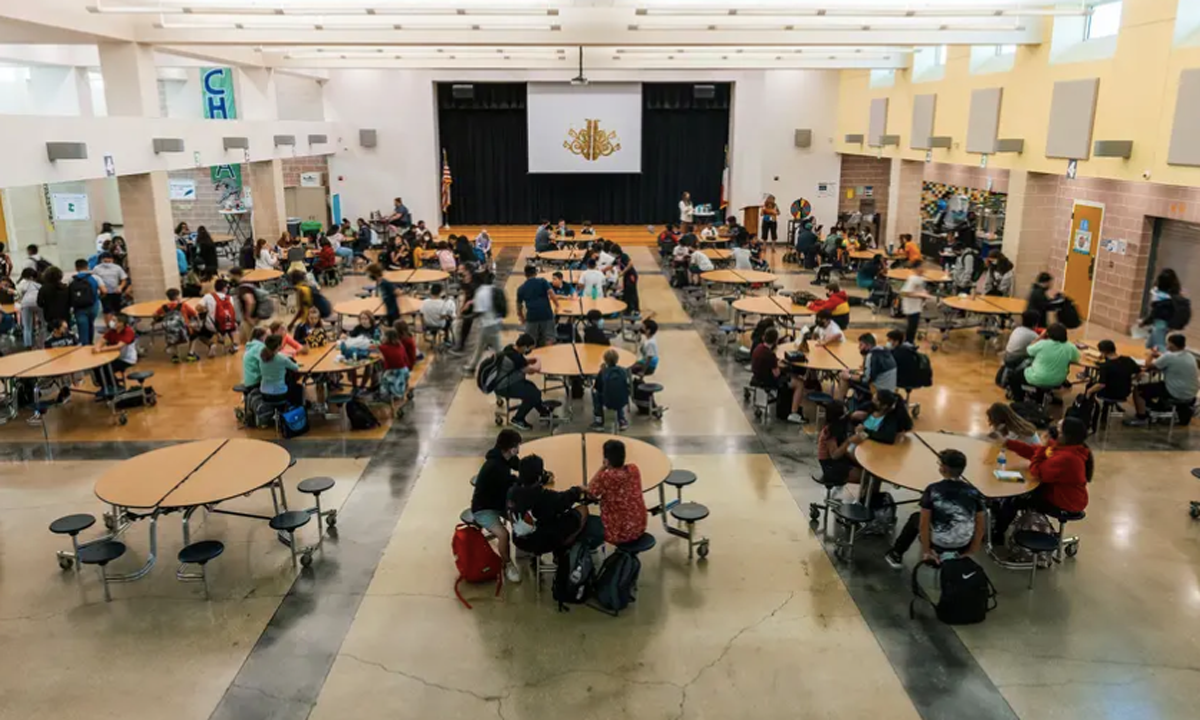Texas Bill Allowing State Funds for Parents to Pay for Private Ed Goes to Senate
Texas senators also advanced a bill that would give raises and other benefits to teachers.

Get stories like these delivered straight to your inbox. Sign up for The 74 Newsletter
A sweeping public education bill that would allow families to use taxpayer money to send their children to private schools and restrict classroom lessons on sexual orientation received initial approval Tuesday and will now go before the Senate for a full vote.
The Senate education committee, led by Sen. Brandon Creighton, R-Conroe, voted 10-2 to advance Senate Bill 8. The vote took place along party lines, with Republican lawmakers favoring the bill and Democrats José Menéndez of San Antonio and Morgan LaMantia of South Padre Island voting against it.
The committee also voted unanimously for an accompanying piece of legislation, Senate Bill 9, which would give pay raises to teachers and increase funding for classrooms, among other measures. The bill will also go to the Senate floor for a vote.
The bill would give parents who opt out of the public school system access to a savings account with up to $8,000 in taxpayer money, per student, which could be used to pay for a child’s private schooling and other educational expenses, such as textbooks or tutoring.
A priority for Republican Lt. Gov. Dan Patrick, the bill would also restrict classroom lessons, school activities and teacher guidance about sexual orientation and gender identity in all public and charter schools up to 12th grade. The bill is one of several pieces of legislation under consideration that could affect the lives of gay and transgender Texans, including one that would restrict the type of health care transgender children can receive.
The bill’s language banning certain types of lessons mirrors a highly controversial law in Florida. Those in favor of the bill say parents are best equipped to teach children about topics like gender identity and sexual orientation.
Historically, rural Republicans have opposed programs similar to vouchers because they fear they could take away money from their local school districts, which are often large employers with fragile budgets. SB 8, however, seeks to address those concerns by shielding school districts with fewer than 20,000 students from any funding losses caused by the savings account program.
Schools in Texas are largely funded based on student attendance numbers. Those smaller districts would receive $10,000 for two years for every student who enrolls in the savings account program and leaves their district.
SB 8 is likely to get approval from the full Senate, but it is not yet clear if the added funding for smaller districts will be enough to get the legislation through the House, which has been traditionally more skeptical of similar programs.
This article originally appeared in The Texas Tribune, a member-supported, nonpartisan newsroom informing and engaging Texans on state politics and policy. Learn more at texastribune.org.
Get stories like these delivered straight to your inbox. Sign up for The 74 Newsletter

;)
